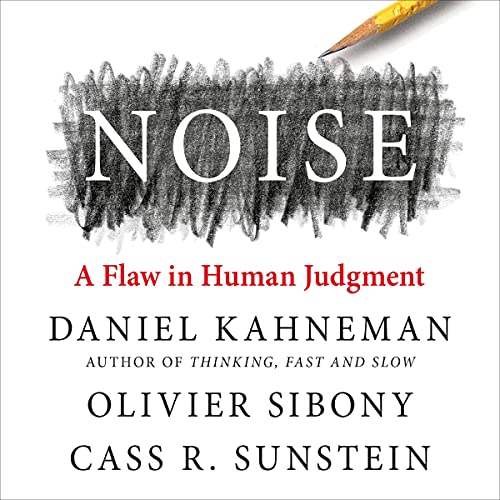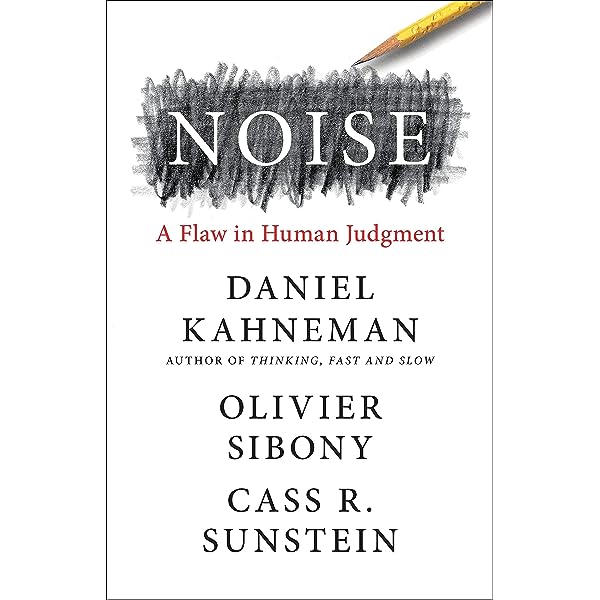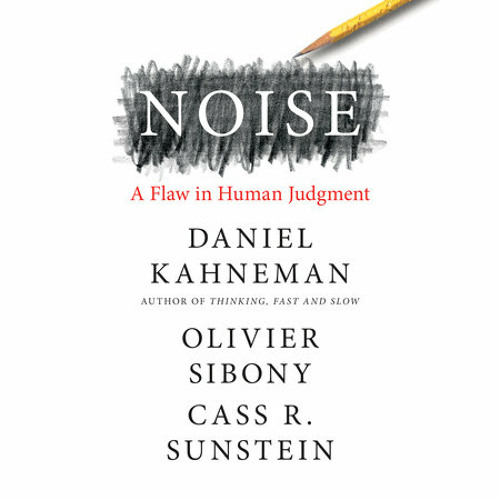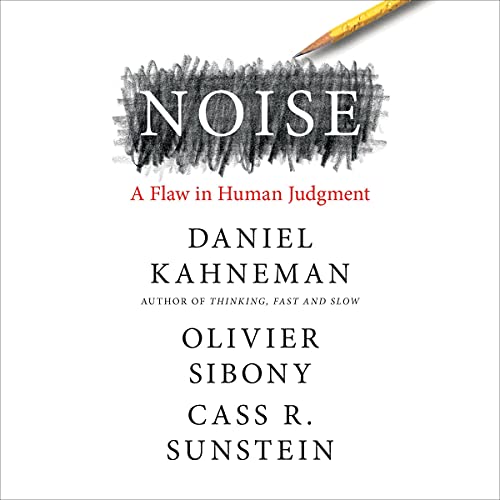“Noise: A Flaw in Human Judgment” by Daniel Kahneman examines the variability in human decision-making. The audiobook explores how noise affects judgments and decisions.
Daniel Kahneman, a Nobel Prize-winning psychologist, delves into the concept of noise in his book, “Noise: A Flaw in Human Judgment”. He explains that noise is the unwanted variability in judgments and decisions. This variability can lead to errors and inconsistencies in various fields, including law, medicine, and business.
Kahneman, along with co-authors Olivier Sibony and Cass Sunstein, provides insights and practical solutions to reduce noise. The audiobook is a valuable resource for anyone interested in improving decision-making accuracy. It combines rigorous research with compelling examples to illustrate the impact of noise.

Delving Into ‘noise’: A Synopsis
Daniel Kahneman’s audiobook ‘Noise’ explores the unseen variability in human judgments. This book dives deep into why people make different decisions in similar situations. Understanding these discrepancies helps improve our decision-making process.
The Genesis Of ‘noise’
The idea of ‘Noise’ originated from Kahneman’s earlier work on human judgment. He noticed inconsistencies in decisions made by experts. These inconsistencies were not just errors but variations in judgment. This led him to explore the concept of ‘Noise’.
‘Noise’ refers to the random variability in human judgment. Unlike bias, which is consistent, noise is unpredictable. Kahneman, along with Olivier Sibony and Cass Sunstein, delves into this concept. They explore its origins and impacts on various fields.
Core Concepts And Themes
The audiobook addresses several key themes:
- Types of Noise: System noise and occasion noise
- System Noise: Variability due to different judges
- Occasion Noise: Variability due to different situations
Kahneman explains how noise affects various domains:
- Medicine: Different diagnoses for the same symptoms
- Law: Variations in sentencing for similar crimes
- Business: Inconsistent hiring decisions
The audiobook also discusses strategies to reduce noise:
| Strategy | Description |
|---|---|
| Decision Hygiene | Structured approaches to reduce judgment variability |
| Checklists | Standardized steps to ensure consistency |
| Algorithms | Data-driven methods to guide decisions |
Through vivid examples and practical advice, Kahneman makes complex ideas accessible. The audiobook is a valuable resource for anyone interested in improving decision-making.
Daniel Kahneman’s Expertise And Contributions
Daniel Kahneman is a world-renowned psychologist and economist. He has made significant contributions to behavioral economics and decision-making psychology. His audiobook, “Noise,” delves deep into these subjects, offering valuable insights.
A Nobel Laureate’s Journey
Daniel Kahneman won the Nobel Prize in Economic Sciences in 2002. He was awarded for his groundbreaking work on the psychology of judgment and decision-making. His journey has been marked by relentless curiosity and dedication.
Kahneman’s research spans over decades. He has collaborated with other great minds in the field. His work has influenced many aspects of economics and psychology.
Influence On Behavioral Economics
Kahneman’s book, “Thinking, Fast and Slow,” is a must-read in behavioral economics. He introduced concepts like System 1 and System 2 thinking. These ideas help explain how people make decisions.
In “Noise,” Kahneman explores the impact of variability in human judgment. He explains how noise affects decisions in various fields. The audiobook provides practical ways to reduce noise and improve decision-making.
His influence extends to policy-making, business strategies, and everyday choices. Kahneman’s work helps us understand and improve our decision processes.
| Contribution | Impact |
|---|---|
| System 1 and System 2 Thinking | Explains fast and slow decision processes |
| Judgment and Decision-Making | Improves understanding of human choices |
| Noise Reduction | Enhances accuracy in various fields |
Kahneman’s insights are invaluable. His work continues to shape our understanding of the human mind.
Audiobook Experience: Pros And Cons
Daniel Kahneman’s audiobook, Noise, offers a unique way to absorb his insights. This section explores the pros and cons of experiencing this book in audio format. Let’s dive into the details.
The Convenience Of Audio Learning
Audio learning is extremely convenient for busy people. You can listen to audiobooks while driving, exercising, or cooking. This flexibility makes it easier to fit learning into your day.
Another advantage is portability. You can carry your audiobook collection on your phone. There’s no need to lug around heavy books.
Listening to an audiobook can also enhance retention. Hearing information can help you remember it better.
| Pros of Audio Learning |
|---|
| Flexibility to multitask |
| Portability |
| Enhanced retention |
Comparing Audio To Print
Comparing audio to print reveals some key differences. Print allows you to highlight and annotate. This can help with studying and quick reference.
In contrast, audiobooks can be harder to navigate. Finding specific sections or quotes is less straightforward.
Print books also let you read at your own pace. You can skim through or re-read difficult parts.
| Audio | |
|---|---|
| Multitasking | Highlight and annotate |
| Portability | Easy navigation |
| Enhanced retention | Read at own pace |
Each format has its strengths and weaknesses. Your preference might depend on your lifestyle and needs. Whether you choose audio or print, Daniel Kahneman’s Noise is a valuable read.


Conclusion
Discover the insights of “Noise” by Daniel Kahneman in audiobook format. This engaging listen reveals the hidden impact of variability in judgments. Enhance decision-making and reduce errors with Kahneman’s expert guidance. Don’t miss out on this transformative experience. Get the “Noise” audiobook today and start your journey towards clearer thinking.



